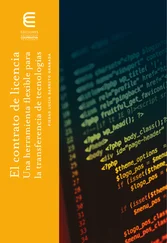Radwa Ashour - Granada
Здесь есть возможность читать онлайн «Radwa Ashour - Granada» весь текст электронной книги совершенно бесплатно (целиком полную версию без сокращений). В некоторых случаях можно слушать аудио, скачать через торрент в формате fb2 и присутствует краткое содержание. Год выпуска: 2003, ISBN: 2003, Издательство: Syracuse University Press, Жанр: Современная проза, Историческая проза, на английском языке. Описание произведения, (предисловие) а так же отзывы посетителей доступны на портале библиотеки ЛибКат.
- Название:Granada
- Автор:
- Издательство:Syracuse University Press
- Жанр:
- Год:2003
- ISBN:9780815607656
- Рейтинг книги:5 / 5. Голосов: 1
-
Избранное:Добавить в избранное
- Отзывы:
-
Ваша оценка:
- 100
- 1
- 2
- 3
- 4
- 5
Granada: краткое содержание, описание и аннотация
Предлагаем к чтению аннотацию, описание, краткое содержание или предисловие (зависит от того, что написал сам автор книги «Granada»). Если вы не нашли необходимую информацию о книге — напишите в комментариях, мы постараемся отыскать её.
Granada — читать онлайн бесплатно полную книгу (весь текст) целиком
Ниже представлен текст книги, разбитый по страницам. Система сохранения места последней прочитанной страницы, позволяет с удобством читать онлайн бесплатно книгу «Granada», без необходимости каждый раз заново искать на чём Вы остановились. Поставьте закладку, и сможете в любой момент перейти на страницу, на которой закончили чтение.
Интервал:
Закладка:
Abu Jaafar was making every effort to calm his soul, which felt at that moment like a caged bird flapping its wings in fear of a sharp pointed knife. He was telling himself over and over again that Granada was safe and that it would survive. He jammed his mind with words, and extended his hand through the netting to his soul, stroking its wet feathers and its quivering body, soothing and caressing it, singing to it a soft lullaby to rock it to sleep.
The morning sun was changing direction above the streets until it eventually disappeared. Abu Jaafar continued his walk until he found himself at the bank of the River Genii. He stared into its waters and the phantom of the naked woman appeared as though coming out of the water toward him. He fixed his gaze more closely, and this time could only see the ripples of the water. Then she reappeared on the surface of the water, ivory-like, growing bigger in death, until she covered the entire surface of the river. He stood motionless and began to sweat profusely.
2
Abu Mansour was sitting on the proprietor’s bench in the bathhouse to the right of the front door. He mumbled a response to the two men’s greetings, then pointed to the closet where they kept the clean folded towels. Saad took three towels and followed his master up three steps that lead to the western wing, where he helped him take off his clothes and cover up his nakedness with a loincloth he wrapped around his waist. He carefully folded his master’s clothes and placed them in a large silk garment bag. Then he took off his own clothes except for his drawers and put them into an old sack. He handed both bundles to Abu Mansour who kept his head bowed down and said nothing.
Before entering the bath proper, the master went into the toilet while Saad sat waiting on one of the benches. There were only three other men in the central foyer. Two of them sat on a bench opposite Saad, while the third, a tall, lean man, paced back and forth, crossing the large foyer from the front door to the back door.
Saad was wondering what was wrong with Abu Mansour. He wanted to know if he was sick but didn’t dare ask. It wasn’t like him to sit at the entrance to the bathhouse like all the other bathhouse owners. He would rather have one of his employees sit there and take the customers’ belongings while he would skitter about, shuffling hurriedly from one room to another, bringing soap to a client or a basin to another, or perhaps a loincloth or a towel to whomever asked for one. He would stop to tell an amusing story or crack a joke that would make everyone roar with laughter. He was a portly man in his fifties, or maybe even his forties. He had a ruddy complexion, finely chiseled features, and a smooth, sleek beard. He had a small head and a big paunch that jounced whenever he laughed. But today, he just sat there, sullen-faced, greeting no one and saying nothing.
“Who could be absolutely sure? Who?” Saad looked up and saw the tall thin man passing in front of him, pacing back and forth muttering these words to himself. As he walked he raised his shoulders so high that they almost reached his ears. One of the two men sitting down yelled out to him, “You’re making us dizzy. Why don’t you calm down and sit like everyone else?” But the man paid no attention and kept pacing and muttering to himself.
The inside room of the bathhouse was packed with clients. Some were seated on the tile bench next to the furnace sweating in the thick steam; others went into the pool to purify themselves before bathing. There were men lying down, on their stomachs and on their backs, submitting themselves to a servant or a bath attendant who busily groomed them, massaged them, or simply poured hot water over their heads. All of the men were engaged in some kind of conversation as their voices cut across both ends of the bath. Even those in the private rooms for hair-removal contributed to the banter from behind a curtain that shielded the others from their stark nakedness. Saad and his master sat cross-legged in their usual spot next to one of the water heaters. His master stretched out his arms while Saad poured water and lathered the washcloth, then he began to scrub his right hand and arm, then the underarm, before moving over to the left. Someone yelled out: “Abu Jaafar, may God be pleased with you! We don’t have the privilege of choosing one thing or another. It’s our fate! We’re defeated, so how can we choose?”
Another bather interrupted. “I’m with you! The agreement is evil, there’s no doubt about it. Our leader was in a difficult situation, and the resistance that Ibn Abi Ghassan wanted to launch was doomed from the start. So what could he do, and what can we do in the face of their awesome army and their new Italian artillery?”
“We can fight them. I swear by the God of the Kaaba, [7] The Kaaba, a place of veneration at the Grand Mosque in Mecca.
we can fight them,” responded Abu Jaafar.
Saad was following the conversation, straining to listen since he wasn’t able to see who was speaking because he was seated facing his master, and all that was in his view was the wall and the water heater to his left.
“Why should we fight them? Aren’t ten years of war enough? Do you want us to end up like the people of Malaga eating our own mules and the leaves off the trees?”
“After submission, they’ll teach us a lesson we’ll never forget. The treaty is nothing but a worthless piece of paper. If we surrender Granada to them, they’ll force us to drop to our knees whenever a clerical procession passes by. They’ll force us to live in separate quarters with only one gate, and they’ll put the sword of expulsion to our throats. What will prevent them from doing all of this once they take control of our country?”
The master stretched out on his back while Saad worked on his knees. He massaged his upper body, stomach, and legs before the master turned over and Saad massaged his back.
“Surrender will prevent them from doing any further damage to us, and it will allow us to maintain some of our rights.”
“How so?”
Other voices followed in repetition, in piercing tones that came close to screeching. The master pulled away his hand and sat upright.
“The treaty stipulates that we be treated honorably, and that our religion, customs, and traditions be respected, and that we be free to buy and sell, and that we preserve our rights to our property, our arms and horses, and that we have legal recourse to our judges in arbitrating matters of dispute. Even our prisoners shall be returned to us, pardoned and free.”
“Merely ink on paper,” retorted Abu Jaafar.
Saad went back to work grooming his master, and when he finished he stretched out his hand to show him the dirt stains that came from his body, the living proof that Saad had done a thorough job in scrubbing him clean. Saad then took the basin and ladled out hot water and poured it over his master’s head as he soaped and rinsed.
“If we reject the treaty and hold our ground, then help will come to us from the shores of North Africa, from Egypt, and even from the Ottoman Turks.”
“Nothing of the sort will come!”
“Never! They won’t leave us alone to defend ourselves.”
“I agree with Abu Jaafar, and Ibn Abi Ghassan did not die as the gossip-mongers are claiming. The Castilians will not have their way. We will stand up to them while Ibn Abi Ghassan’s men are breathing down their backs. The Egyptian, North African, and Ottoman fleets have them blockaded, and their only way out is to die.”
The master motioned him to stop pouring the hot water on his head, and he continued to speak, enunciating every word with the utmost emphasis. “Granada has fallen, there’s no doubt about it. Ibn Abi Ghassan was a fool who wanted us to plunge into a battle we couldn’t sustain. Thank God he’s dead! And now we can relax and he can rest in peace.”
Читать дальшеИнтервал:
Закладка:
Похожие книги на «Granada»
Представляем Вашему вниманию похожие книги на «Granada» списком для выбора. Мы отобрали схожую по названию и смыслу литературу в надежде предоставить читателям больше вариантов отыскать новые, интересные, ещё непрочитанные произведения.
Обсуждение, отзывы о книге «Granada» и просто собственные мнения читателей. Оставьте ваши комментарии, напишите, что Вы думаете о произведении, его смысле или главных героях. Укажите что конкретно понравилось, а что нет, и почему Вы так считаете.












